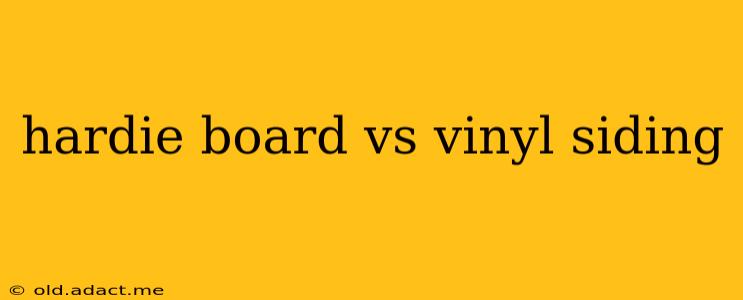Choosing the right siding for your home is a crucial decision, impacting both its aesthetics and longevity. Two popular contenders often top the list: Hardie board (fiber cement) and vinyl siding. Both offer attractive options, but understanding their key differences is vital for making an informed choice. This comprehensive comparison will delve into the pros and cons of each, helping you determine which siding best suits your needs and budget.
What is Hardie Board Siding?
Hardie board, also known as fiber cement siding, is a composite material made from cement, cellulose fibers, and sand. This blend results in a durable, fire-resistant, and low-maintenance siding option that mimics the look of wood without the associated upkeep.
Pros of Hardie Board Siding:
- Durability: Hardie board is incredibly resistant to damage from impact, rot, insects, and extreme weather conditions. Its robust nature ensures it can withstand harsh climates and stand the test of time.
- Fire Resistance: A significant advantage of Hardie board is its inherent fire resistance, providing an added layer of safety for your home.
- Low Maintenance: While it requires occasional cleaning, Hardie board generally needs minimal upkeep compared to wood siding.
- Aesthetic Appeal: It offers a range of styles and finishes, including textures that convincingly imitate wood grain, providing a sophisticated and natural look.
- Increased Home Value: Many homeowners consider Hardie board siding a significant upgrade that adds value to their property.
Cons of Hardie Board Siding:
- Higher Cost: Hardie board is considerably more expensive than vinyl siding, representing a significant upfront investment.
- Installation Complexity: Its weight and the need for precise cutting often necessitate professional installation, adding to the overall cost.
- Susceptibility to Moisture Damage (if not properly installed): While resistant to rot, improper installation can leave Hardie board vulnerable to moisture damage.
- Potential for Cracking (with extreme temperature fluctuations): In areas with significant temperature swings, cracking can occasionally occur.
What is Vinyl Siding?
Vinyl siding is a popular choice due to its affordability and ease of installation. Made from polyvinyl chloride (PVC), it's a lightweight and relatively inexpensive material.
Pros of Vinyl Siding:
- Affordability: Vinyl siding is significantly cheaper than Hardie board, making it an attractive option for budget-conscious homeowners.
- Easy Installation: Its lightweight nature and simple installation process often make DIY installation feasible, saving on labor costs.
- Low Maintenance: Vinyl siding requires minimal upkeep, typically only needing occasional cleaning.
- Variety of Colors and Styles: A wide array of colors and styles are available, allowing for considerable design flexibility.
Cons of Vinyl Siding:
- Lower Durability: Compared to Hardie board, vinyl siding is less durable and more susceptible to damage from impact, extreme weather, and UV degradation.
- Can Fade and Crack: Prolonged sun exposure can lead to fading and cracking, reducing its aesthetic appeal over time.
- Less Fire Resistant: Vinyl siding is more flammable than Hardie board.
- Doesn't Increase Home Value as Significantly: While it improves the look of a house, it typically doesn't add as much value to a property as Hardie board.
Hardie Board vs. Vinyl Siding: Which is Right for You?
The best choice depends on your priorities. If durability, fire resistance, and long-term value are paramount, Hardie board is the superior option, despite its higher cost. If budget is a major constraint and you prioritize affordability and ease of installation, vinyl siding might be a more suitable choice.
How Long Does Hardie Board Siding Last?
Hardie board siding, with proper installation and maintenance, can last for 50 years or more. Its durability and resistance to the elements contribute to its extended lifespan.
How Long Does Vinyl Siding Last?
Vinyl siding typically lasts for 20-30 years, although this can vary depending on factors like sun exposure, weather conditions, and installation quality. UV degradation and impact damage can shorten its lifespan.
Is Hardie Board Siding Worth the Cost?
Whether Hardie board is worth the cost depends on your individual circumstances. The long-term durability, increased home value, and fire resistance often justify the higher upfront investment for many homeowners. However, if budget is extremely tight, vinyl siding may be a more practical option.
Which Siding is Better for Extreme Weather?
Hardie board generally performs better in extreme weather conditions. Its resistance to impact, wind, and moisture makes it a more reliable choice for areas prone to severe storms or harsh climates.
By carefully weighing the pros and cons of each option and considering your budget and long-term goals, you can make an informed decision that will protect and enhance your home's exterior for years to come.
